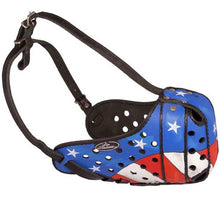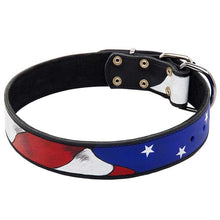Signs Your Dog Has Allergies And What To Do

An uncomfortable problem for many German shepherds is allergies. Although not all skin problems are allergy-related, many are. Owners are often quick to switch food to help relieve their dog’s symptoms, but not all allergies are food-related so what is an owner to do?
What Are Dog Allergies?
Understanding what triggers allergy symptoms in dogs helps get to the root of their problem. Allergies are due to the immune system overreacting to something benign in the environment, plants, food, or biting insects.

When a dog is exposed to an allergy trigger, otherwise known as an allergen, their body releases chemicals, such as histamines. This causes allergic inflammation and the symptoms of an allergic reaction.
Allergic reactions in dogs can range from localized itching, and gastrointestinal distress, to rare but potentially fatal anaphylactic shock. When a dog has allergies, it’s important to minimize their exposure to the allergen and if that’s impossible, work with your vet to help eliminate them.

Symptoms of Allergies in Dogs
Allergy symptoms in dogs include:
• Itching, scratching
• Licking
• Red paws and skin
• Sneezing
• Hair loss
• Dermatitis
• Ear infections
• Hives
• Diarrhea and vomiting
• Itchy eyes
• Runny nose
• Upper respiratory infections
• Anal itching and glans issues
• Coughing
• Swelling of the face, lips, ears, tongue
• Trouble breathing, wheezing

How Common Are Dog Allergies?
Dog allergies are very common, and many owners are quick to blame dog food. This can result in a never-ending search for the perfect food without much success. However, according to Tuft University’s Cummings Veterinary Center, true food allergies are rare.
Much more common allergens for dogs include grass, pollen, dust, mites, and fleas. Therefore, at times when food is changed, allergy symptoms seem to resolve only to slowly return. In these cases, seasonal allergies may be at play.

Dog Food Allergies
Most dog food allergies are caused by the protein. Although grains are often vilified, true grain allergies are much rarer than protein allergies. When dogs are allergic to food, the allergic reaction gets stronger each time they eat the protein they are allergic to.
According to Tufts, "Food allergies occur when an animal's immune system misidentifies a protein from food as an invader rather than a food item and mounts an immune response. The results of this response can be itchy skin or ear and skin infections in some pets, while it may cause vomiting or diarrhea in others."
The best way to diagnose a true food allergy is to work with your vet and put your dog on an elimination diet, this is not as easy as it sounds. On an elimination diet, your dog will ONLY eat the prescribed food for a while to see if their symptoms go away. If they do go away, you may slowly introduce new foods to try to identify the trigger, or you just may stay with what is working if your dog’s symptoms were severe.

A popular approach is to purchase dog food allergy test kits online but those kits are notoriously inaccurate and can’t be relied on to give reliable results. If they were reliable, they would be the gold standard for veterinarians but unfortunately, they’re not.
Allergens in Dog Food
Although food allergies are rare, the more common causes of allergic reactions include:
• Beef
• Chicken
• Dairy
• Eggs
Even rarer:
• Fish
• Lamb
Rarer still:
• Corn
• Wheat
• Oats
• Rice
• Legumes
• Potatoes
If your dog suffers from true food allergies, some options can help. A limited ingredient diet can be helpful but keep in mind that over-the-counter foods can’t guarantee they’ll be free from cross-examination.

A prescription hydrolyzed food can be life-changing for dogs with food allergies. Hydrolyzed food means that it has gone through a process to break down proteins on a molecular level so that they are too small for the dog's body to recognize them as allergens.
Consulting with a veterinary nutritionist can also be helpful. If you need more food guidance or would like to make a balanced homemade diet and want to ensure that there are no deficiencies, they are worth the investment and will work with your vet.
Environmental Allergies In Dogs
There’s no doubt that environmental allergens can make dogs miserable. They’re also not easy to prevent because they’re everywhere and can be worse seasonally. Some common environmental allergens in dogs include:
• Grass
• Trees
• Weeds
• Pollen
• Mold
• Dust

Fortunately, environmental allergens are easier to diagnose than food allergies. A veterinary dermatologist can run skin tests on your dog and begin immunotherapy to help reduce symptoms.
If this isn’t feasible, you can try to eliminate the triggers in the environment. If this is impossible, helping reduce exposure and prescription medications can help. Some things you can do at home include:
• Keep their environment clean with dog-safe products
• Eliminate artificial scents and harsh chemicals
• Wipe down face and paws after being outside
• Wash bedding often
• Support your dog’s skin barrier with supplements, such as omega 3’s and colostrum
• Feed a healthy diet that provides skin and coat support
• Bath your dog in a gentle shampoo that won’t strip natural oils

Unfortunately, dogs with environmental allergies require continual care and management of their health to help them live a comfortable life. For those with severe symptoms, there are interventions, such as the Cytopoint injection, which is much safer than steroids.
We hope you find this article helpful. As always, please feel free to share with your friends.
You might also like: 7 Things In Your House That Could Be Causing Your German Shepherd’s Allergies
























